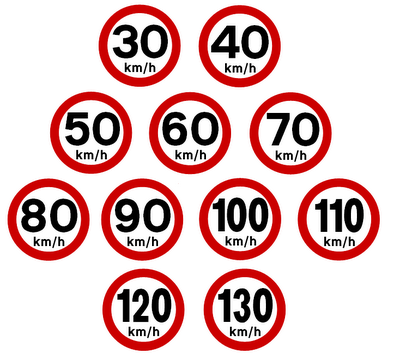Advocates of increasing the speed limits say motorists are safer because they focus more when they are driving faster, but now scientific evidence has been provided.
Long-time motorcycle rider and flight instructor Peter Callil has provided relevant scientific information gained from years of safety research which started on a flight instructor course in 1988.
He says it all comes down to stress levels as noted by human behaviour researcher Chris Welford in 1973. People perform better when their stress level is moderate and worse when it is too low and too high, according to Welford’s research.
“Welford’s research plotted stress, or demand, against human performance,” says Peter who raced motorcycles before joining the RAAF.

“It showed graphically, how human performance is related to the level of stress or demand to which they are subjected.
“In a road safety context, pressure relates to speed, and performance relates to our ability to operate a vehicle safely.”
Peter says that a motorist’s performance is degraded whether they are driving too fast or too slow for the conditions, but that these are “personal parameters”, not arbitrary decided speed limits.
He says the speed most motorists would instinctively travel at the safest should be decided by them, not determined by the authorities. Otherwise they are effectively mandating a one-size-fits-all solution that only fits the least capable.
“The speed limits we use today were established last century, when cars and roads were much less developed, yet speed limits have largely stagnated, or regressed,” he says.
“Since metrication in July 1974, speed limits have “progressed” from four standard limits – 35, 45, 60, and 70mph – to eight, from 40 to 110km/h in 10km/h increments.
“To put this into perspective, at the time of metrication the latest model Holden was equipped with drum brakes, conventional tyres, and front seat belts had been compulsory in new cars for 4 1/2 years. At that time, all major highways had two undivided lanes, and the main road between Brisbane and Sydney had lost its last ferry crossing just eight years prior, in August 1966, over the Clarence River. Canberra had just taken over responsibility for funding the main roads between capital cities in the same year, with some sections of highway being nothing more than dirt tracks at the time.
“If speed limits are set correctly, the majority of drivers could not spare the time or attention to waste on such frivolous behaviours as texting or playing with the sat nav.
“Ironically, those drivers who stubbornly choose to drive to the conditions, despite the posted speed limit, are subconsciously seeking to operate in the area of best performance – thereby seeking the safest course of action.”
Peter made these claims in a submission to the Senate Committee Personal Choice and Community Impacts Inquiry.
However, the inquiry ceased for the 2016 election and the subsequent Senate agreed not to re-refer this inquiry in the 45th Parliament.



